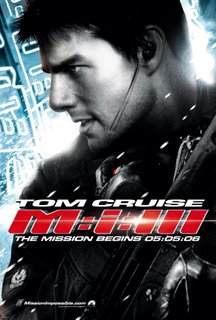
From
Star Wars.com:
"This September: Original Unaltered Trilogy on DVD... See Han Solo shoot first."
That's right. Another re-release of the Star Wars Trilogy.
I have mixed feelings on this one. Obviously, remastered versions of the original, untarnished movies complete with their now-ancient filmmaking technologies and preserved the way we remember watching them as kids will be a treat. I hated almost everything Lucas did with the Special Editions (Greedo shooting first, the clumsiliy CG'd scene with Jabba and Han Solo in A New Hope, the "
Wilhelm scream" that was added to Luke's Cloud City fall after his fight with Vader in The Empire Strikes Back... what an idiot move for one of the most dramatic moments of that movie). I have to admit I'm tempted to get these DVD's when they come out.
On the other hand, Lucasfilm is a lazy, greedy, cash-sucking empire that takes the phrase "resting on one's laurels" to entirely new heights. How many more editions of Star Wars can we expect?
....Notes from Lucasfilm's executive board meeting this year to discuss marketing strategies:
Five Year PlanRelease Original Version of Star Wars, Empire Strikes Back, and Return of the Jedi individually on DVD
then Original Versions of Trilogy in DVD Box Set
then Collector's Edition of said DVD Box Set
then Prequels in DVD Box Set
then Collector's Edition of Prequels DVD Box Set
then Entire Six-Part Movie Series in DVD Box Set
then Collector's Edition of Six-Part Movie Series DVD Box Set
Wait one year....
Repeat entire process with HD-DVD/Blu-Ray...
(at this point in the meeting, the investors' derisive laughter and uncontrollable chortling causes them to start gagging on the endangered meat they had been greedily eating, as one by one, they begin to clutch at their chests and throats, clenching their fists around crumpled dollar bills, tearing their pig grease-stained three-piece suits as they eventually collapse with an empty thud, landing face down in a collective pool of blood vomit)...
Nonetheless, it's pretty sweet they're doing it. Best Buy in September anyone?








